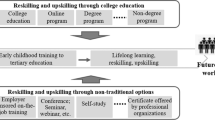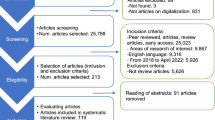Abstract
Strengthening technological innovation and improving independent intellectual property rights is one of the most important tasks for the development of our country's integrated circuit enterprises. In addition to the main body of technological innovation-the enterprise's own efforts, it is also necessary to create an environment for enterprise technological innovation as a base for enterprise service organizations. Formulate policy support and management incentive mechanisms and guide enterprise technological innovation. In order to further improve the conditions of integrated circuit public service software and hardware, expand the sharing and application of resources, and promote the development and innovation of our country's integrated circuit design industry, an integrated circuit design industrialization base should be established. The base construction, government will, enterprise alliance, and public core technology research and development environment are integrated, aiming to play a guiding role in the integrated circuit industry. Starting from the problem of insufficient incentives faced by the management of integrated circuit design enterprises, this article uses a variety of research methods to deeply analyze the phenomenon of insufficient incentives for managers and further analyze the causes of insufficient incentives for company managers. Existing problems in the process of incentives for managers have targeted the implementation of broadband compensation, the establishment of dual career development channels, the improvement of performance appraisal systems, enrichment of training content and forms, etc., in order to provide guidance for the management practices of IC design enterprises’ managers. The research concluded: the new incentive mechanism has improved the profitability of the five branch companies. The employee turnover rate has been reduced from 9.35 to 3.27%, and the rework rate has been reduced from 6.8 to 2.1%. This not only improves R company’s industry competitiveness, but also enhances company cohesion and promotes The career development of company managers.






Similar content being viewed by others
References
Aagaard A, Lindgren P (2016) Exploring the concept and incentives of sustainable business models. J Multi Business Model InnovTechnol 4(1):35–46
Abdel-Basset M, Mohamed M, Elhoseny M, Chiclana F, Zaied AE (2019) Cosine similarity measures of bipolar neutrosophic set for diagnosis of bipolar disorder diseases. ArtifIntell Med. https://doi.org/10.1016/j.artmed.2019.101735
Abdelmotaal H, Abdel-Kader M (2016) The use of sustainability incentives in executive remuneration contracts: firm characteristics and impact on the shareholders’ returns. J Appl Account Res 17(3):311–330
Adithipyangkul P, Leung TY (2017) Incentive pay for non-executive directors: the direct and interaction effects on firm performance. Asia Pacif J Manag 35(4):943–964
Agha M (2016) Agency costs, executive incentives and corporate financial decisions. Social Science Electronic Publishing, Waltham, pp 425–458
Dutta AK, Elhoseny M, Dahiya V, Shankar K (2019) An efficient hierarchical clustering protocol for multihop internet of vehicles communication. Trans EmergTelecommunTechnol. https://doi.org/10.1002/ett.3690
Bernardo AE, Talley EL, Welch I (2016) Designing corporate bailouts. J Law Econ 59(1):75–104
Bobillo AM, Rodriguez-Sanz JA, Tejerina-Gaite F (2017) Corporate governance drivers of firm innovation capacity. Rev Int Econ 26(3):721–741
Button P (2019) Do tax incentives affect business location and economic development? Evidence from state film incentives. NBER Working Papers 77:315–339
Chakrabarty B, Seetharaman A, Swanson Z, Wang XF (2018) Management risk incentives and the readability of corporate disclosures. SSRN Electron J 47(3):583–616
Chen CH, Lin MY, Guo XC (2018) High-performance fieldbus application-specific integrated circuit design for industrial smart sensor networks. J Supercomput 74(5):4451–4469
Chien CF, Huynh NT (2018) An integrated approach for ic design r&d portfolio decision and project scheduling and a case study. IEEE Trans SemicondManuf 31(1):76–86
Di W, Millimet DL (2017) Targeted business incentives and the debt behavior of households. Empirical Econ 52(3):1115–1142
Eulerich M, Velte P (2016) Determinants of executive board remuneration. New insights from Germany. Social Sci Electron Publ 11(4):96–113
Flammer C, Hong B, Minor D (2019) Corporate governance and the rise of integrating corporate social responsibility criteria in executive compensation: effectiveness and implications for firm outcomes. Strategic Manag J 40(7):1097–1122
Jalon ML, Baquerizo A, Losada MA (2016) Optimization at different time scales for the design and management of an oscillating water column system. Energy 95:110–123
Jian H, Jain BA, Omesh K (2019) Industry tournament incentives and the product-market benefits of corporate liquidity. J Financial Quantitat Anal 54(2):829–876
Kim H (2019) Investigating the mediating role of social networking service usage on the big five personality traits and on the job satisfaction of Korean workers. J Organ End User Comput 31(1):110–123
Liu TT, Lee TC, Chiueh TD (2016) Sscs-taipei chapter holds integrated circuit design workshop on ultra-low-voltage design in advanced cmos technology [conference reports]. IEEE Solid-State Circ Mag 8(2):120–121
Marsh JS, Graefe-Anderson R (2018) Undermining incentives: ceo reactions to compensation rebalancing. J Manage Governance 22(2):1–27
Nguyen T (2018) Ceo incentives and corporate innovation. Social Sci Electron Publ 53(2):255–300
Poudineh R, Rubino A (2017) Business model for cross-border interconnections in the mediterranean basin. Energy Policy 107:96–108
Quinn PJ (2014) Shifting corporate culture: executive stock ownership plan adoptions and incentives to meet or just beat analysts’ expectations. Social Sci Electron Publ 23:1–32
Streich M, D’Imperio A, Anke J (2018) Evaluation of incentives for sharing data in digital business models using the example of usage-based insurance. HMD Praxis der Wirtschaftsinformatik 55(5):1086–1109
Tsai SB, Yu J, Ma L, Luo F, Zhou J, Chen Q, Xu L (2018) A study on solving the production process problems of the phEconomicotovoltaic cell industry. Renew Sustain Energy Rev 2018(82):3546–3553
Wu W, Liu Y, Wu CH, Tsai SB (2020) An empirical study on government direct environmental regulation and heterogeneous innovation investment. J Clean Prod. https://doi.org/10.1016/j.jclepro.2020.120079
Author information
Authors and Affiliations
Corresponding author
Rights and permissions
About this article
Cite this article
Ai, F., Zhang, L. Incentive mechanism system of the management of IC design enterprises. J Ambient Intell Human Comput 14, 1311–1322 (2023). https://doi.org/10.1007/s12652-021-03044-9
Received:
Accepted:
Published:
Issue Date:
DOI: https://doi.org/10.1007/s12652-021-03044-9




